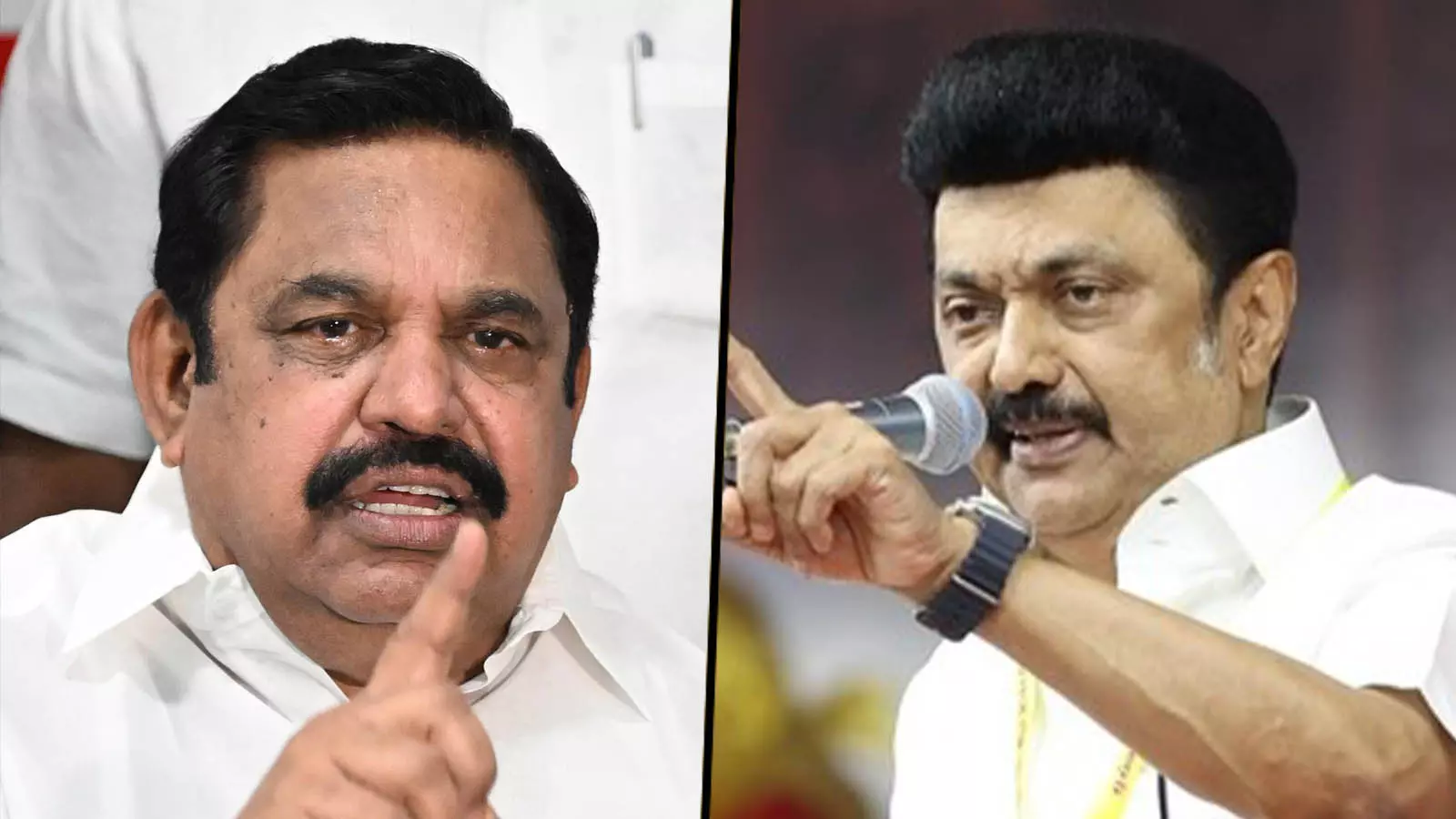
TN Assembly poll narrative moving toward delimitation vs anti-incumbency
DMK believes the campaign projecting delimitation as an attack on Tamil identity could sway voters, but AIADMK-BJP could shift focus to local issues

As Tamil Nadu gears up for the 2026 Assembly elections, the contentious issue of delimitation is in the spotlight, with the ruling DMK leveraging it as a key political strategy to protect regional sentiments.
Chief Minister MK Stalin has projected delimitation as a threat to Tamil Nadu’s parliamentary representation, accusing the BJP-led Union government of orchestrating a “conspiracy” to diminish the voice of southern states.
Also read | Stalin slams Modi govt's decision to defer Census exercise to 2027
The Opposition, led by the AIADMK and its ally, the BJP, has dismissed Stalin’s campaign as “fear-mongering” aimed at masking governance failures.
Delimitation offensive
Stalin has positioned the DMK as the defender of Tamil Nadu’s interests, arguing that population-based delimitation, expected post-2027 Census, would penalise southern states like Tamil Nadu for their success in population control while rewarding northern states with increased parliamentary seats. He accused AIADMK general secretary Edappadi K Palaniswami (EPS) of complicity, stating, “By aligning with the BJP, EPS has become a partner in this betrayal, exposing his submission to Delhi’s domination.”
The DMK has mobilised a broad coalition, including its secular progressive alliance partners like the Congress, CPI, CPM, and Viduthalai Chiruthaigal Katchi (VCK), to oppose delimitation.
Oppn’s counterattack
The AIADMK, under EPS, has accused Stalin of whipping up fear to divert attention from alleged governance lapses, including corruption scandals and law and order issues. EPS mocked Stalin’s delimitation campaign.
“The puppet CM speaks of ‘fair delimitation’ while presiding over a corrupt, dynastic regime. Delimit the Tasmac loot, drug mafia, and your family’s arrogance first,” EPS retorted, referencing alleged scams involving liquor, sand mining, and cash-for-jobs.
He emphasised AIADMK’s commitment to Tamil Nadu’s dignity, vowing to fiercely defend the state’s parliamentary representation if elected in 2026.
Also read | Call for delimitation freeze is fair, but here is what South should realise
The BJP, led by Union Home Minister Amit Shah, too, has dismissed the delimitation concerns as a “drama” to hide DMK’s failures. Former Tamil Nadu BJP chief K Annamalai slammed Stalin, urging him to focus on pressing state issues like the Mullaiperiyar and Cauvery water disputes.
The AIADMK-BJP alliance, announced in April 2025, aims to capitalise on anti-incumbency against the DMK. Shah confirmed that EPS will lead the NDA in Tamil Nadu, with no preconditions set by AIADMK. However, internal AIADMK murmurs suggest unease over ideological differences with the BJP, particularly on issues like Hindi imposition and federalism, which could alienate Tamil voters sensitive to “northern impositions.”
The Vijay factor
Actor Vijay’s Tamilaga Vettri Kazhagam (TVK) has added a new dimension to the electoral landscape. His party’s appeal among youth could split Opposition votes, potentially benefiting the DMK.
Senior journalist Savithri Kannan supported the DMK’s stance, arguing that population-based delimitation is flawed and could reduce Tamil Nadu’s representation while increasing urban seats, like Chennai’s, from three to six or seven.
Also read | TASMAC 'scam': AIADMK questions role of Udhayanidhi’s 'friend' Ratheesh
“The DMK’s proactive approach is correct. EPS’s criticism stems from his BJP alliance,” he said, adding that the strategy’s success depends on how effectively DMK communicates this threat to voters. Kannan believes a strong campaign framing delimitation as an attack on Tamil identity could sway public opinion against the BJP.
AIADMK's IT wing secretary Rajsathyan, however, accused the DMK of instilling “unnecessary fear” to mask its failure to deliver on promises like Katchatheevu and Cauvery rights. “The DMK has done nothing in four years except claiming credit for AIADMK’s schemes. Our alliance with the BJP is strategic to secure funds and projects without compromising our principles,” he said.
Ground zero impact
The delimitation debate’s impact on the 2026 elections hinges on how parties shape voter perceptions, Kannan said. The DMK’s strategy of casting itself as the protector of Tamil pride against a “north-centric” BJP resonates in a state with a history of resisting perceived cultural and political impositions. Issues like Hindi imposition, NEET, and delimitation have been effectively used by the DMK to mobilise its base, as seen in its 2024 Lok Sabha sweep, where the INDIA alliance won all 39 Tamil Nadu seats.
However, the AIADMK-BJP alliance could gain traction if it successfully highlights anti-incumbency sentiments, focusing on alleged DMK corruption and governance failures. The 2024 Lok Sabha polls showed that if the two parties had fought the polls in alliance they could have led in 84 Assembly segments, suggesting potential strength if their cadres unite effectively. Yet, the AIADMK’s tie-up with the BJP risks alienating voters wary of Hindutva and central overreach, especially in rural areas where the AIADMK is strong but the BJP is weak.
Also read | Direct Stalin vs Vijay contest in 2026 poll? CVoter survey fuels debate
Vijay’s TVK remains a wildcard. While untested, its youth appeal could disrupt traditional vote banks, particularly if it positions itself as a fresh alternative to the Dravidian giants. Political analyst Ramu Manivannan notes, “If the anti-BJP narrative dominates, it's advantage DMK. But if AIADMK-BJP shifts focus to local issues, they could challenge Stalin.”

